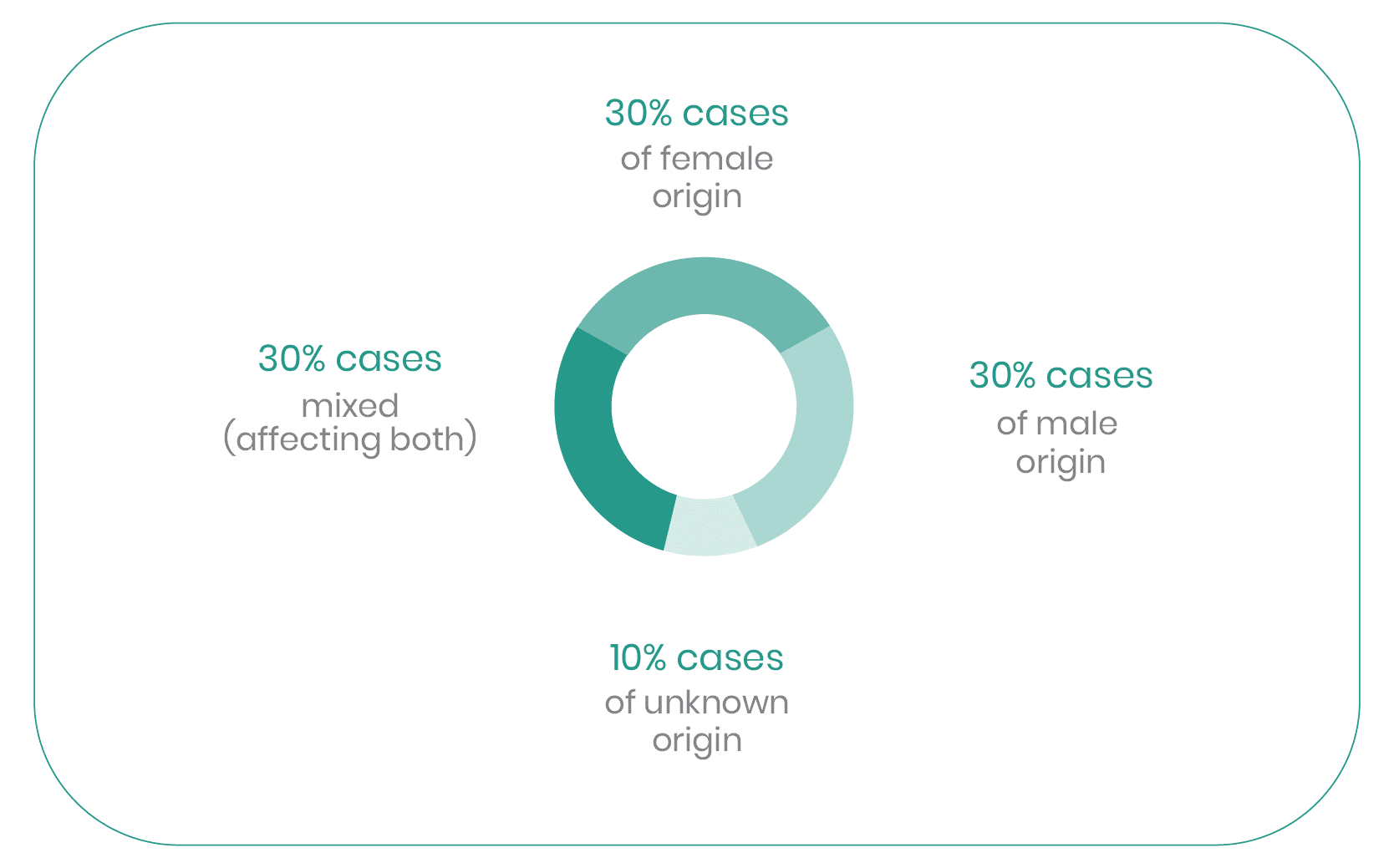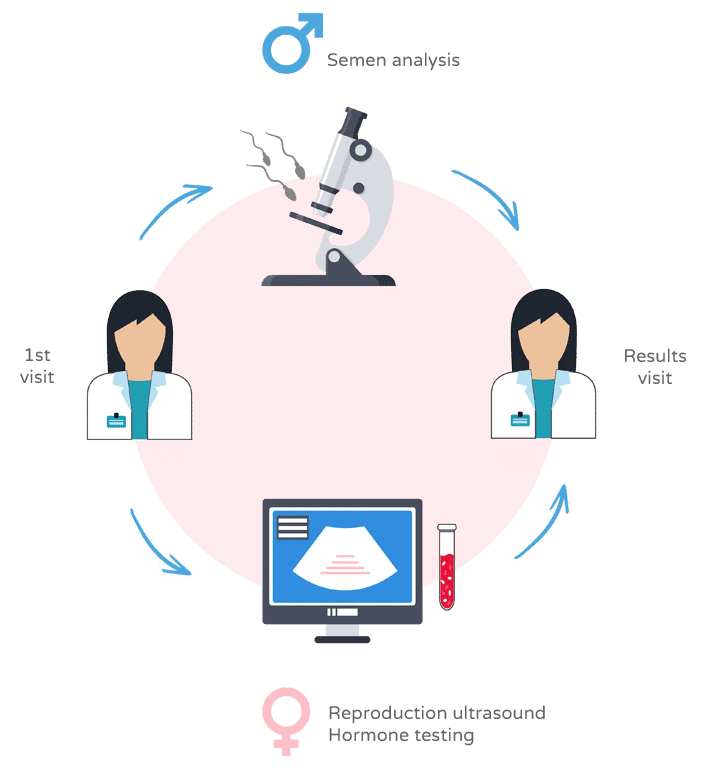Couples fertility study
Why do it
When a couple has trouble conceiving, it is essential to study both partners to be able to make a diagnosis. Moreover, in 30% of cases, the infertility is due to both male and female factors, so doing the study on the couple speeds up the process and allows us to identify other possible factors of genetic or immunological incompatibility.

More common than you think
Fertility disorders affect 15% of couples wanting to have children.

What does it involve?
The couples’ fertility study is a fixed-price package consisting of an initial personal visit with assisted reproduction experts for both partners and a set of diagnostic tests that are conducted separately to identify the possible cause of the infertility and make a diagnosis.
What is included
1. Initial medical consultation:
Interview with both partners to find out their medical history, lifestyle, couple’s habits and family history.
2. Diagnostic testing:
- Tests done on the woman
- Blood test anti-Müllerian hormone (AMH).
- Gynaecological ultrasound: to determine the ovarian reserve by counting antral follicles (structures containing eggs that have not yet matured) and to detect possible diseases of the reproductive system (malformations, polyps, fibroids, cysts, etc.).
- Tests done on the man
- Complete semen analysis to measure the concentration, quantity and mobility of the sperm.
- Andrology consultation (if required).
3. Consultation to discuss results and proposal of possible treatments

Price

Couples fertility study: 145 €
Other tests
Following on from these tests, the specialists may require an additional test not included in this study, such as:
For the female
- Cervical screening and complete physical exam (breast exam and pelvic exam): done only if the patient has not had a gynaecological check-up within the past year with a cervical screening (the results of which she will need to provide).
- Hysterosalpingography/Hysterosalpingosonography: to determine a possible blockage in the fallopian tubes.
- Diagnostic hysteroscopy: internal examination of the uterus using an optical camera.
For the male
- Semen culture: to rule out seminal infections.
- Sperm morphology: assesses the morphological characteristics of the sperm.
- Sperm capacitation test: analyses the physiological changes that sperm naturally go through to acquire the ability to fertilise the egg.
- FISH: analysis of the chromosome content of spermatozoa.
- DNA fragmentation: analysis of sperm quality from a genetic point of view.
When is it advised
- If you have been trying to conceive for more than a year without success (or more than six months if the woman is aged over 35).
- If you or your partner have a family history of infertility or a hereditary disease.
- If you have had more than one miscarriage.
- If you have undergone assisted reproduction treatments and they have not worked.
- If you want a second medical opinion with as few tests as are needed to make an assessment.
Why choose us

Extensive experience
Centre of reference and a pioneer in assisted reproduction techniques in Spain, with more than 80 years’ experience in the diagnosis and treatment of assisted reproduction.

Immediate results and facilities
First visit and performance of all tests at the same clinic and on the same day. Delivery of the results and diagnosis and the assessment visit can be carried out in the clinic or by videoconference.

Professionalism
We offer you a multi-disciplinary medical team specialising in male and female sexual health.

Own laboratories
We have our own Andrology laboratory and a unit specialising in Gynaecological Diagnostic Imaging (GDI) equipped with the latest technology.

Analysis of multiple cases
Our Reproductive Medicine Unit receives more than 2,650 visits and carries out more than 3,400 assisted reproductive treatments each year.
What is the best treatment for me?
If you don’t know which treatment is best suited to you, try our online pre-diagnosis.